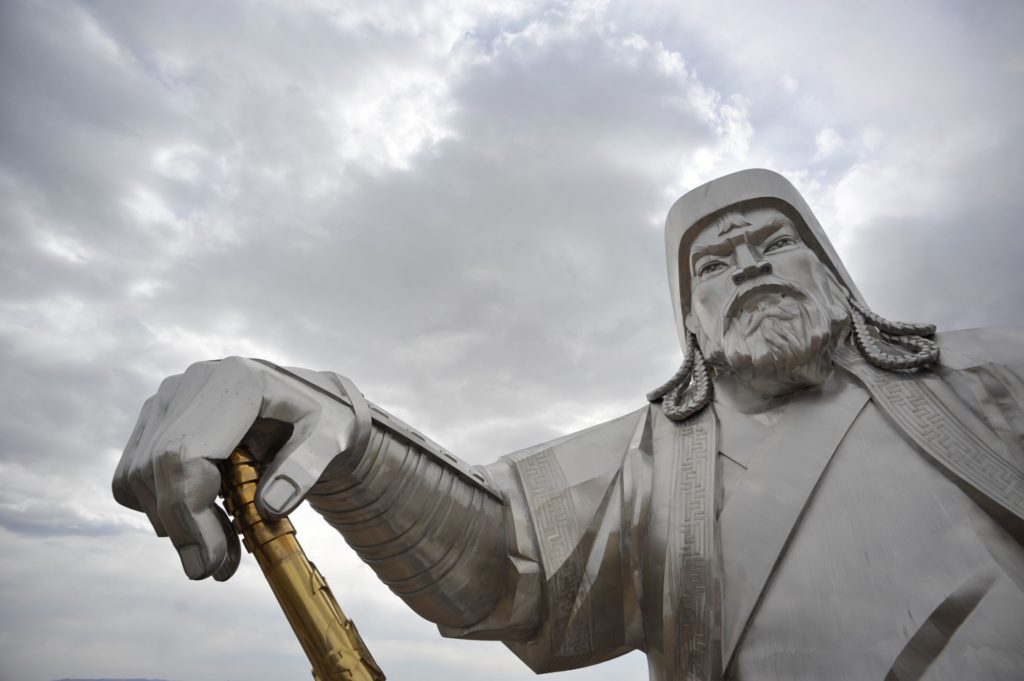
Published Spring 2022
The images out of Kiev and Lviv—especially of young Ukrainian mothers fleeing with their children or hiding in shelters underground—take me back a long way, to Matthews Hall in Harvard Yard in September 1959, when I arrived as a freshman and met my roommates. One was Ukrainian and the other was Hungarian, and both had come to America as refugees from Stalin or Stalin’s heirs.
My Ukrainian roommate, Danylo Struk, was a dashing young man with a certain Cossack swagger that would make him popular at Wellesley and Radcliffe mixers. Dan had two great loves: Ukraine and Ukrainian literature. We became best of friends and collaborated in translating Ukrainian fiction and poetry—Dan doing a rough draft of the translation and me polishing up the English.
Dan’s father had been murdered in one of Stalin’s purges. His mother must have been an extraordinary woman—forebear of the Ukrainian mothers we now see trying to shield their young from Putin’s bombs and rockets. With little Danylo in tow, she fled to the West, making her way across many borders, through the Russian armies and the German armies, until at last she made it to the safety of the American lines.
Dan and his mother were displaced persons. They wound up among the Ukrainians of the diaspora in northern New Jersey, around Metuchen, where Dan grew up. He earned a scholarship to Rutgers Prep and then another to Harvard.
After we graduated, many of us trooped down to New Jersey, to the large Ukrainian immigrant community there, for Dan’s marriage to Roma, a Ukrainian beauty from Alberta, Canada. The wedding, a tremendous affair with heroic drinking and dancing, went on for four days. Alas, the marriage did not last.
My other roommate, Derick, was in his teens when Russian tanks rolled into Budapest in 1956. His family escaped by night, often on foot, until they reached Austria. “We walked across the border around 1 AM, not far from the bridge at Andau,” Derick remembered. “We were housed in a monastery in Styria, from where we got to Salzburg and eventually on a U.S. aircraft out of Munich. We arrived in the U.S. in a snowstorm around 10 PM on December 24, 1956. It is still the best Christmas present I ever had.”
Among the few things they brought out of Hungary was his father’s valuable stamp collection, which helped support the family after they settled in New York. Derick found his way to a New York private school, and then to Harvard. He attended Harvard Medical School and became a successful internist and hospital administrator.
Danylo would become a distinguished professor of Slavic languages and literatures at the University of Toronto. The great project of his life, causa pietatis, was Ukraine. He founded and edited the Encyclopedia of Ukraine, a vastly ambitious project. After 30 years of labor, said one description, it became the “most comprehensive work in English on Ukraine: its history, people, geography, economy, and cultural heritage, both in Ukraine and in the diaspora.”
Dan died too soon, more than 20 years ago, of a heart attack while he was attending an academic conference. Derick and I remain in touch, and he promises to visit us on our farm in upstate New York in June. We’ll talk a lot about Danylo.
In old age, you see the patterns of repetition—with variations. These are history’s morphic resonances, as the biologist Rupert Sheldrake calls them: “In its most general formulation, morphic resonance means that the so-called laws of nature are more like habits.” So it is in Russia now. Putin—the tiger hunter, the bare-chested centaur, the man at the end of the long, silly table—recapitulates (with variations) Joseph Stalin—Koba the Dread. Or, across centuries, he conjures Peter the Great—Russia’s Enlightenment modernizer, a Dr. Jekyll with more than a touch of Mr. Hyde. Or Ivan the Terrible. Or even, deep in the nostalgia of the id, Genghis Khan, who united the nomadic tribes of northeast Asia in the twelfth century by summoning the ancient ferocities with which Putin seeks, in the twenty-first century, to reunite tribes of the old Soviet empire—his Planet Krypton.
Lance Morrow, a contributing editor of City Journal and the Henry Grunwald Senior Fellow at the Ethics and Public Policy Center, was an essayist at Time for many years. His latest book is God and Mammon: Chronicles of American Money.
Lance Morrow is the Henry Grunwald Senior Fellow at the Ethics and Public Policy Center. His work focuses on the moral and ethical dimensions of public events, including developments in regard to freedom of speech, freedom of thought, and political correctness on American campuses, with a view to the future consequences of such suppressions.








